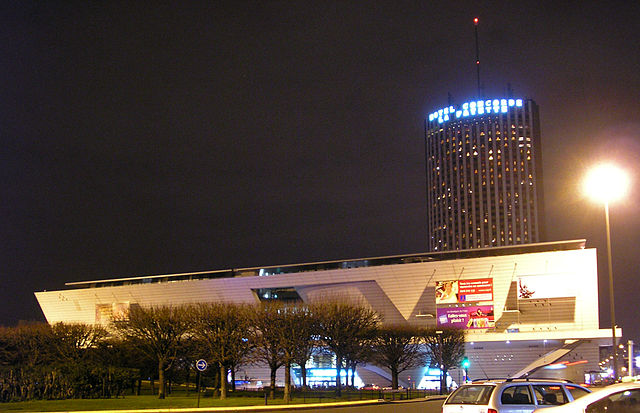Eurovision Song Contest 1978
The Eurovision Song Contest 1978 was the 23rd edition of the annual Eurovision Song Contest. It took place in Paris, France, following the country's victory at the 1977 contest with the song "L'Oiseau et l'Enfant" by Marie Myriam. Organised by the European Broadcasting Union (EBU) and host broadcaster Télévision Française 1 (TF1), the contest was held at the Palais des Congrès on 22 April 1978 and was directed by Bernard Lion. The contest was presented by French television presenters Denise Fabre and Léon Zitrone. This was the first time that more than one presenter had hosted the contest as well as the first to have a male presenter since 1956.
Palais des Congrès, Paris – host venue of the 1978 contest.
Palais des congrès de Paris
The Palais des congrès de Paris is a convention centre, concert venue, and shopping mall at the Porte Maillot in the 17th arrondissement of Paris, France. The venue was built by French architect Guillaume Gillet, and was inaugurated in 1974. Nearby the venue are Bois de Boulogne and the affluent neighbourhood of Neuilly-sur-Seine. The closest métro and RER stations are Porte Maillot and Neuilly–Porte Maillot, accessible via the lower levels of the building.
Palais des congrès de Paris
The hotel and Palais des Congrès at night (February 2007)


